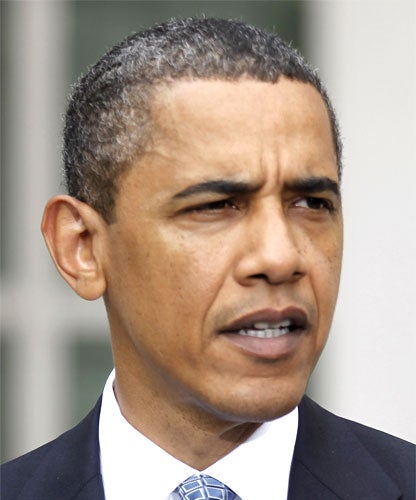US reaction: Cracks appear in America's other special relationship

Your support helps us to tell the story
From reproductive rights to climate change to Big Tech, The Independent is on the ground when the story is developing. Whether it's investigating the financials of Elon Musk's pro-Trump PAC or producing our latest documentary, 'The A Word', which shines a light on the American women fighting for reproductive rights, we know how important it is to parse out the facts from the messaging.
At such a critical moment in US history, we need reporters on the ground. Your donation allows us to keep sending journalists to speak to both sides of the story.
The Independent is trusted by Americans across the entire political spectrum. And unlike many other quality news outlets, we choose not to lock Americans out of our reporting and analysis with paywalls. We believe quality journalism should be available to everyone, paid for by those who can afford it.
Your support makes all the difference.At first glance, Washington's response to the deadly raid on the Gaza aid flotilla suggested nothing has changed in relations between Israel and its most important ally.
Once again, the US conspicuously failed to follow most of the rest of the world in condemning Israel. The White House merely expressed its "deep regret" at the loss of life, stressing the need to establish first the details of what happened. The State Department went a fraction further, citing its "deep concern" at the civilian sufferings in Gaza. But again, no condemnation.
The traditional pro-Israeli lobby groups here meanwhile blamed the incident on Hamas supporters deliberately seeking a confrontation. So far, so typical. In reality, however, the incident is likely to place further strains on ties between the two countries – not just at government level, but in the attitude of secular American Jews towards Israel, cooling even before Monday's events.
Many of these latter will echo the sentiments of J Street, the moderate Jewish advocacy group founded in 2008, as it assailed the "counter-productive" Israeli blockade of Gaza, calling the attack "one more nail in the hopes" of ending the Middle East conflict peacefully, and of "preserving Israel's Jewish and democratic character".
Thanks to America's holiday calendar, the extent of any shift will only become clear in the next few days. The raid took place on Memorial Day when Congress – where support for Israel is strongest – was starting a week's recess. But no show of sympathy on Capitol Hill can reduce the gap between the Obama administration and Benjamin Netanyahu's right-wing coalition in Jerusalem.
Yesterday was to have seen a fence-mending of sorts, with a carefully choreographed visit by the Israeli Prime Minister to the White House, symbolising the fact that the two leaders had put behind them the row over Israel's settlement expansion in East Jerusalem, and new tensions created by Washington's refusal to prevent Israel being criticised by name in the closing resolution of the Nuclear Non-Proliferation Treaty conference.
To the relief of the White House, Mr Netanyahu called the visit off – sparing Mr Obama television images of the Prime Minister defending Israel's behaviour on American soil that would only have reinforced the Islamic world's belief that the US automatically rubber-stamped whatever Israel does.
But, for Washington, one problem was instantly replaced by another. The diplomatic diary meant that the other important foreign visitor in town yesterday was Ahmet Davutoglu, the Foreign Minister of Turkey – another key US ally in the Middle East but also the country most outraged by the attack, given the number of Turks on board the flotilla vessels.
Thanks to the attack, so sensitive was his meeting with the Secretary of State, Hillary Clinton, that press coverage was barred. But Mr Davutoglu made his views crystal clear beforehand. "We expect a clear condemnation" he said. It was not a question of the US choosing between Turkey and Israel, "it is a choice between right and wrong."
Mr Obama will probably manage to finesse that particular choice. But other damage cannot be avoided. The sea battle in the eastern Mediterranean has distracted attention from his administration's top priority of securing tougher sanctions against Iran. It has, as J Street warned, made attempts to revive the moribund peace process through US-sponsored proximity talks between Israel and Palestine even more difficult.
It has probably strengthened Hamas and further weakened the Mahmoud Abbas, the Palestinian President – and added even more weight to the unprecedented warning of General David Petraeus, the top US military commander for the region, that the failure to resolve the Israeli-Palestinian dispute was damaging America's security interests across the Middle East.
Join our commenting forum
Join thought-provoking conversations, follow other Independent readers and see their replies
Comments